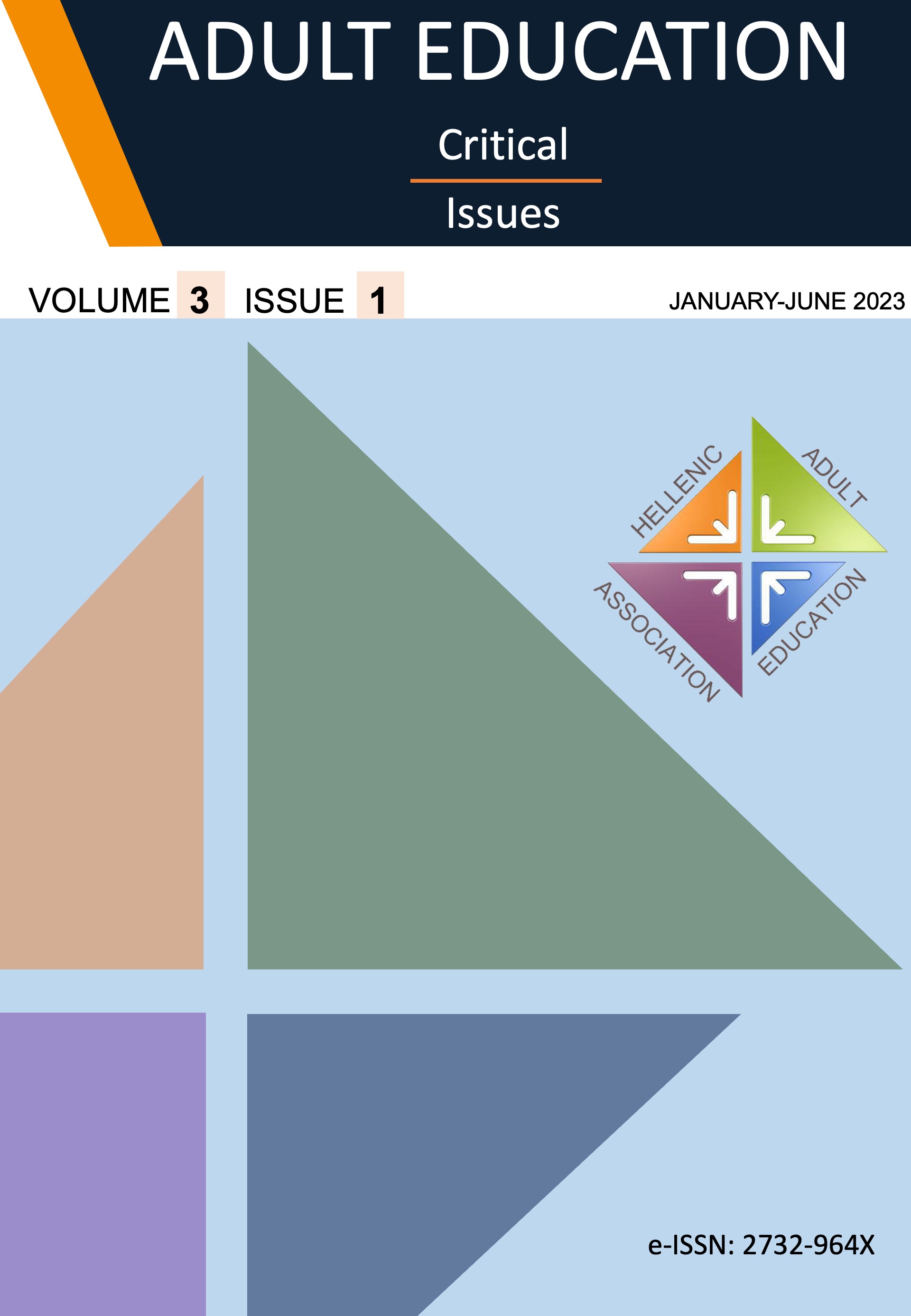Η διαμόρφωση των Ευρωπαϊκών πολιτικών στην Εκπαίδευση Ενηλίκων: Βασικά μηνύματα και σημαντικές προκλήσεις
Abstract
Το παρόν άρθρο αναλύει τις κύριες επιρροές και τους παράγοντες που επηρέασαν τη διαμόρφωση της πολιτικής για την εκπαίδευση ενηλίκων στην Ευρωπαϊκή Ένωση (ΕΕ), καθώς και τα βασικά μηνύματα, τις κύριες κατευθύνσεις και τις βασικές έννοιες που επισημαίνονται στα σχετικά έγγραφα πολιτικής. Προκειμένου να διερευνηθούν τα παραπάνω, πραγματοποιήθηκε ανασκόπηση των επίσημων εγγράφων πολιτικής της ΕΕ για την εκπαίδευση ενηλίκων τα τελευταία είκοσι χρόνια. Η εκπαίδευση ενηλίκων απέκτησε εξέχουσα θέση στην πολιτική της ΕΕ κυρίως ως συστατικό ζωτικής σημασίας της διά βίου μάθησης. Ωστόσο, διαφαίνεται ότι η έμφαση στις πολιτικές αυτές δίνεται κυρίως στην υλοποίηση των οικονομικών στόχων της Ένωσης, εστιάζοντας στις τάσεις και τις ανάγκες της αγοράς εργασίας, όπως είναι η απασχολησιμότητα και η ανταγωνιστικότητα. Αυτό το άρθρο καταλήγει στη θέση ότι οι πολιτικές για την εκπαίδευση ενηλίκων πρέπει να διασφαλίζουν την απρόσκοπτη συμμετοχή των ενηλίκων στη μάθηση, έτσι ώστε να προάγουν την προσωπική και κοινωνική ανάπτυξη και την ευημερία των ενηλίκων και να συμβάλλουν στη διαμόρφωση πιο συνεκτικών και δίκαιων κοινωνιών.
Article Details
- Come citare
-
Ιωάννου Ν. (2023). Η διαμόρφωση των Ευρωπαϊκών πολιτικών στην Εκπαίδευση Ενηλίκων: Βασικά μηνύματα και σημαντικές προκλήσεις. Adult Education Critical Issues, 3(1), 7–25. https://doi.org/10.12681/haea.31755
- Fascicolo
- V. 3 N. 1 (2023): January - June 2023
- Sezione
- Articles

TQuesto lavoro è fornito con la licenza Creative Commons Attribuzione 4.0 Internazionale.
Authors who publish with this journal agree to the following terms:
- Authors retain copyright and grant the journal right of first publication with the work simultaneously licensed under a Creative Commons Attribution License that allows others to share the work with an acknowledgement of the work's authorship and initial publication in this journal.
- Authors are able to enter into separate, additional contractual arrangements for the non-exclusive distribution of the journal's published version of the work (e.g., post it to an institutional repository or publish it in a book), with an acknowledgement of its initial publication in this journal.
- Authors are permitted and encouraged to post their work online (e.g., in institutional repositories or on their website) prior to and during the submission process, as it can lead to productive exchanges, as well as earlier and greater citation of published work (See The Effect of Open Access).



